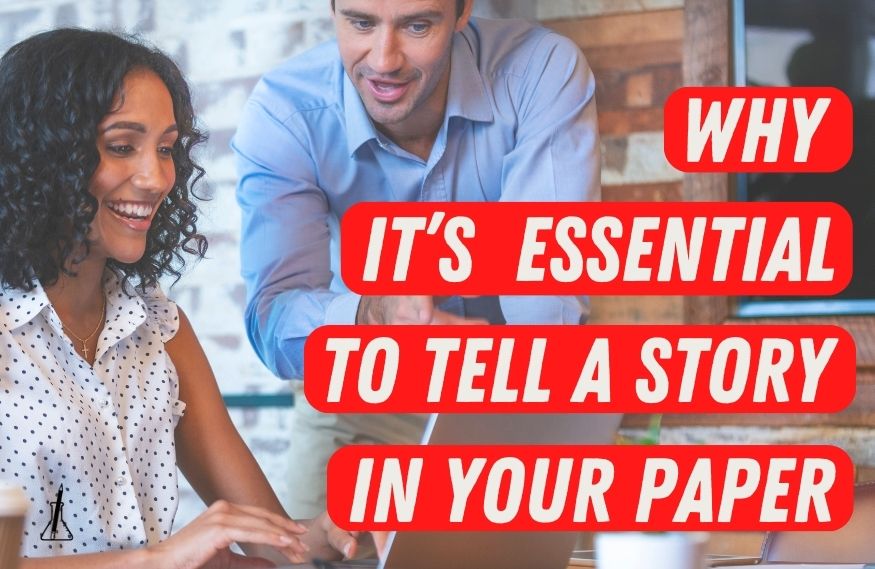Ever gotten the advice to tell a story in your paper? In this blog post, we’re defining what storytelling means and why it is so powerful when communicating science.
Maybe you’re familiar with Netflix asking you whether you are still watching and the feeling of slight embarrassment that comes with it? You’re not alone getting drawn in by TV shows, films or books – I can assure you that. Because there’s a reason for it: We love a good story. But what exactly is a story and why is it necessary that we use it in academic writing?
What is a story?
“Story” can mean various things. You might think about the good night stories parents tell their kids, about that magazine article you read the other day, about a fairy tale, or about what you made up as an excuse for not coming in to work yesterday. In fact, when looking the word up in a dictionary you find more than ten different definitions. One meaning of story is that it is a piece of fiction or even a lie. That might be the reason why some scientists are skeptical about using storytelling in their writing.

But the kind of story that, I believe, is crucial for writing about science is a different one, namely, what Collins dictionary calls the “narration of a chain of events”. And I’m going to define this further: A story – also described as a narrative – should contain essential elements that are arranged in a certain structure: a plot. One of the most crucial elements is tension. Without this friction, for example, a problem, conflict or an unsolved question, every story remains boring.
Why you should use storytelling in science
But why would you need to care about storytelling, a tool that is a staple in the toolbox of movie script writers and book authors ? Because story is so powerful that you’d miss out if you wouldn’t use it to communicate your research too. The reason for that?
Our brain on story
Before people learned how to write and read, it used to be normal for humans to tell each other stories to pass on information. In fact, humans could speak, exercising their story-telling skills, for at least 100,000 years but first signs of written communication are thought to be less than 6,000 years old. The majority of human societies only became literate a hundred or so years ago – really quite recent in comparison.
Therefore, our brains have evolved in a way that they find it much easier to process information when told or written in a story. We also find a story more entertaining than a list of information – or did you ever fancy reading the telephone book instead of a novel? Neuroeconomics professor Paul J. Zak at the Claremont Graduate university in California has an answer to this. He and his colleagues found out that narratives get our attention when they develop tension. Once sucked in by a story, the scientist found that it evokes emotions in us caused by the hormone oxytocin.
Emotions are also known to aid to remember facts and events. Gordon Bower and Michal Clark from Stanford University in California discovered in 1969 that stories themselves can boost our memory. They asked their study participants to remember twelve sets of unrelated nouns. One participant group was instructed to simply rehearse them word by word and the other to construct meaningful stories with each word list. The result? The subjects who were allowed to use a narrative recalled the nouns about six to seven times better than the control group with a success rate of 80 to 100%.
How storytelling helps to communicate science
So, stories do three things: They get our attention, they get us emotionally engaged and they make us remember. Don’t get your hopes up too much, nobody is likely to binge-read your research articles and be able to recall the details a year later. But the easiest way to have more people interested in and understand your research is by giving them a story. And it doesn’t hurt when they feel a little entertained. This includes the editor you’re sending the paper too. They might receive dozens of manuscripts a day, but when they feel captured reading your stuff, and actually get what it is about, it isn’t too unlikely that they will send it out for peer review. Some high-impact journals even require you to use storytelling in your papers.


